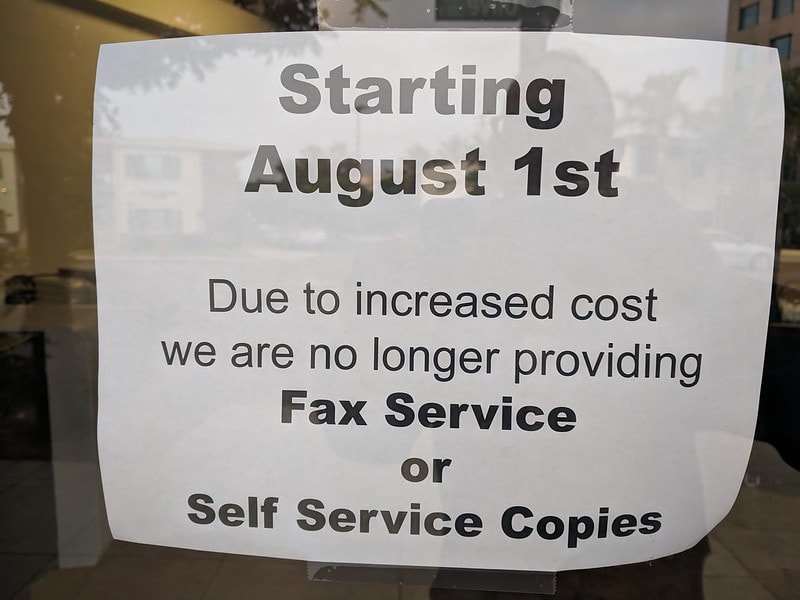So we hear in this week's Gospel. It's a scary one. Though probably not more scary, honestly, than a lot of what we've been hearing from Jesus in the Gospel according to Luke recently. It's part of what is often called apocalyptic literature, meaning that it involves the revelation or uncovering of some previously-unknown truth. Here it's about the fate of Jerusalem and its Temple, which is the center of Jewish religious life, and discord among nations and families, famines and plagues, persecution and the testimony and endurance by which, Jesus tells his disciples, "you will gain your souls."
But a whole lot of Luke's Gospel is apocalyptic. There are a lot of unexpected reversals and surprises. Remember Lazarus and the Rich Man, who are suddenly revealed as being in opposite places in the universe from where everyone thought they were--Lazarus near to Abraham while the rich man suffers in flames. We can learn the rhythm of these apocalypses. They are meant to train us, as disciples, in seeing the world differently. As hearers of Jesus, we enjoy the privilege of seeing the reversal before it happens and living as if it were already accomplished.
This week's passage is tougher because it's not just a revelation about the world, it's a revelation about the end of the world. Or at least the end of a world. The word for this in Biblical literature is eschatology, the writings about the last things, the ends of things, or the very edges of things.
While Martin Luther himself was drenched in eschatological thought (like many people of his and every age, he believed the world he lived in was so hopelessly wicked that surely God was going to put an end to all of it soon), Lutherans in the centuries that followed him became less confident speaking in eschatological terms. A lot of Christian theology and practice downplayed anything about "the end" and the final return of Christ. We mostly settled in for a life of sin, repentance, and forgiveness, repeated and tweaked until we died and went to our reward. Heaven and Earth pretty much stayed put, with our particular church "stuff" (prayers, sacrament, grace) being the ways one connected with the other. The wild world of first-century Judaism, or even 16th-century Christianity, receded from view.
More and more, however, even Christians from our somewhat stodgy and cautious branch of the family are recovering the eschatological and apocalyptic spirit of the Gospels and the early Church. We don't always know what to do with that material. I certainly don't. It makes people nervous or incredulous. It has inspired lots and lots of believers to go hunting for "signs," as the disciples ask Jesus for in the passage. It's as though we can have some control over our chronically unsettled world if we can figure out the cipher, crack the code written in heaven and earth that will tell us what is coming and when, so we can be ready for it.
But part of Jesus's message is that we can't really be ready and shouldn't try. Jesus foretells the destruction of the Temple (which came to pass in 70 A.D., a few decades after his crucifixion) even as he is there teaching every day. He tells his disciples not to plan for their defense but to let the Spirit do the work when the moment of testing comes, so that their lives will prove the Gospel all the more. If it's their cleverness, their preparation, their plausible arguments, no one will be convinced and no one should be.
And I'll admit that this is a hard thing to hear just now. Maybe at any time. Our world is changing very fast and many beautifully adorned things that we love will, even in our lifetimes, not be there. They'll be lost to neglect or hostility, to a dearth of resources or the ravages of a changing climate. There are lots of ways to plan for this and resist it, many good and many bad. But for faith, there's really only the path of speaking in truth and acting in love for as long as we can. As Fleming Rutledge, a prominent scholar and Episcopal priest put it in the context of Paul's first letter to Timothy, "the call to be faithful in the daily grind is set into the cosmic panorama of the coming of the Lord of the universe in glory and power." I need to hear that, because like a lot of people I'm most comfortable dividing them into two time scales: the daily grind on one hand, with no end or fundamental change in sight day to day, and the eternal day of the Lord, which touches the former only by faith or hope. They're both one in these passages, and while that's hard to hear it's also good news.
More on this week's readings:
Whatever his teaching about the Temple’s destruction might have implied, Jesus continued to teach there even following this teaching (21:37; see also 19:47; 20:1; 22:53). And, the final verse of the story of Luke’s Gospel reports not only the disciples worship of Jesus (in itself quite shocking for first-century Jews!) but also how they remained “continually in the Temple blessing God” (24:53).
Emerson Powery, Workingpreacher.org
The faithful will neither give false hope nor make false accusations. They will respond to persecution and accusations with wisdom. What is this wisdom that none “will be able to withstand or contradict?” Perhaps it is the wisdom of God that Paul describes: “We proclaim Christ crucified, a stumbling block to Jews and foolishness to Gentiles, but to those who are the called, both Jews and Greeks, Christ the power of God and the wisdom of God” (1 Cor. 1:23–24).
Yvette Shock, ChristianCentury.org


 RSS Feed
RSS Feed